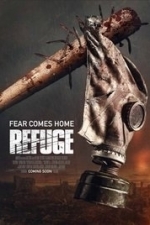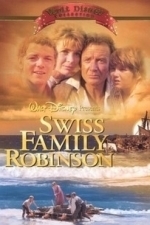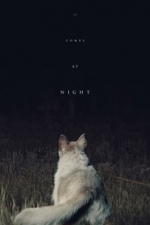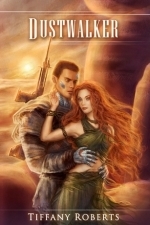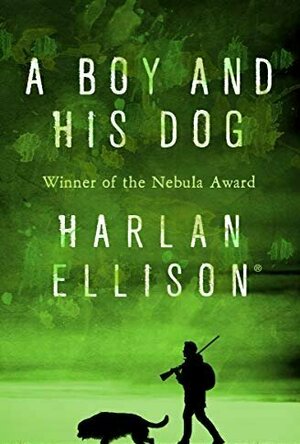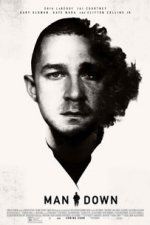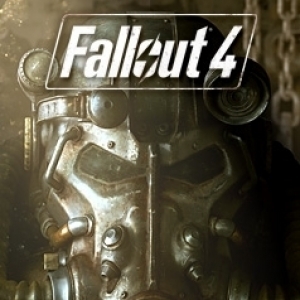Search
Darren (1599 KP) rated Refuge (2013) in Movies
Sep 26, 2019
Characters – The characters focus on a family, Jack the father, the man that will do everything to keep his family safe, even if it means taking risks by saving strangers, he doesn’t back down from enemies or threats, but is forced into decisions he doesn’t want to make. Nell is the wife and mother, we don’t really learn too much about her though, she falls in the woman being protected circle. Birdie is the daughter that doesn’t fully understand the world and wants to just be a child in this world. Kyle is one of the people that Jack has saved in the past.
Performances – The performances from the cast are great throughout, we feel their bleak outlook on the life they are living which is what we want to see, the final act shows them at their best too.
Story – The story here follows a family in a post-apocalyptic world where the biggest threats marauders and the virus that has wiped out most of the world. This is a bleak story that helps show us just how desperate the world now is and not having any sort of zombie side to everything giving us the only enemy the human one. This keeps everything simple because it is all we need, even though it does follow the typical mistakes being made by the characters.
Thriller – This does try to keep us on the edge of our seats about whether our characters will survive and what is next in line for them.
Settings – The film keeps us in the bleak locations from start to finish, they show where people will survive and keeps us away from the big city.
Scene of the Movie – The break in.
That Moment That Annoyed Me – Just shot them.
Final Thoughts – This is one of the best looking bleak virus outbreak movies, it does have questionable character decisions but that does add to the drama.
Overall: Simple and effective.
Performances – The performances from the cast are great throughout, we feel their bleak outlook on the life they are living which is what we want to see, the final act shows them at their best too.
Story – The story here follows a family in a post-apocalyptic world where the biggest threats marauders and the virus that has wiped out most of the world. This is a bleak story that helps show us just how desperate the world now is and not having any sort of zombie side to everything giving us the only enemy the human one. This keeps everything simple because it is all we need, even though it does follow the typical mistakes being made by the characters.
Thriller – This does try to keep us on the edge of our seats about whether our characters will survive and what is next in line for them.
Settings – The film keeps us in the bleak locations from start to finish, they show where people will survive and keeps us away from the big city.
Scene of the Movie – The break in.
That Moment That Annoyed Me – Just shot them.
Final Thoughts – This is one of the best looking bleak virus outbreak movies, it does have questionable character decisions but that does add to the drama.
Overall: Simple and effective.
Darren (1599 KP) rated Swiss Family Robinson (1960) in Movies
Sep 26, 2019
Characters – The characters focus on a family, Jack the father, the man that will do everything to keep his family safe, even if it means taking risks by saving strangers, he doesn’t back down from enemies or threats, but is forced into decisions he doesn’t want to make. Nell is the wife and mother, we don’t really learn too much about her though, she falls in the woman being protected circle. Birdie is the daughter that doesn’t fully understand the world and wants to just be a child in this world. Kyle is one of the people that Jack has saved in the past.
Performances – The performances from the cast are great throughout, we feel their bleak outlook on the life they are living which is what we want to see, the final act shows them at their best too.
Story – The story here follows a family in a post-apocalyptic world where the biggest threats marauders and the virus that has wiped out most of the world. This is a bleak story that helps show us just how desperate the world now is and not having any sort of zombie side to everything giving us the only enemy the human one. This keeps everything simple because it is all we need, even though it does follow the typical mistakes being made by the characters.
Thriller – This does try to keep us on the edge of our seats about whether our characters will survive and what is next in line for them.
Settings – The film keeps us in the bleak locations from start to finish, they show where people will survive and keeps us away from the big city.
Scene of the Movie – The break in.
That Moment That Annoyed Me – Just shot them.
Final Thoughts – This is one of the best looking bleak virus outbreak movies, it does have questionable character decisions but that does add to the drama.
Overall: Simple and effective.
Performances – The performances from the cast are great throughout, we feel their bleak outlook on the life they are living which is what we want to see, the final act shows them at their best too.
Story – The story here follows a family in a post-apocalyptic world where the biggest threats marauders and the virus that has wiped out most of the world. This is a bleak story that helps show us just how desperate the world now is and not having any sort of zombie side to everything giving us the only enemy the human one. This keeps everything simple because it is all we need, even though it does follow the typical mistakes being made by the characters.
Thriller – This does try to keep us on the edge of our seats about whether our characters will survive and what is next in line for them.
Settings – The film keeps us in the bleak locations from start to finish, they show where people will survive and keeps us away from the big city.
Scene of the Movie – The break in.
That Moment That Annoyed Me – Just shot them.
Final Thoughts – This is one of the best looking bleak virus outbreak movies, it does have questionable character decisions but that does add to the drama.
Overall: Simple and effective.
Gareth von Kallenbach (980 KP) rated It Comes At Night (2017) in Movies
Jul 11, 2019
There are some things that are truly frightening. For some, it could be ghosts while others fear zombies. There are many things that concern us and even keep us awake at night. With It Comes At Night, audiences are faced with one of the greatest fears that man has: the unknown.
The film features Paul (Joel Edgerton) a father and husband who is seeking to keep his family safe in the wilderness from unknown threats. He and his family are uncertain of what has taken place. They are not sure if the population has become victims to terrorism, disease, or some sort of supernatural occurrence. Paranoia builds as a stranger arrives on their land. What are his intentions? Can they trust each other long enough to survive? Will they outlast whatever has consumed countless others?
The film is haunting and will have its audience trying to guess and discover what exactly is taking place. The film is reminiscent of The Village, The Happening, and other movies that rely on ambiguity. For some films, the mystery may be the downfall as it leads nowhere. With It Comes At Night, the filmmakers allow for reality to seep into the lives that viewers are witnessing on the screen. For this film, the ambiguity allows for the audience to question how they would behave or adapt in a seemingly post-apocalyptic environment. We like to think that we know, but we can never be sure. This comes through with the actions of each of the characters. They are alone and afraid.
The film is deep in its approach to what the world would look like should calamity approach. People would become distrustful, fight, turn on each other, kill without thinking, and eventually sink into the realization that they don’t know what to do. It Comes at Night allows for the reality of horror to be exposed. It is not knowing how to face a certain danger, it is about having to come to terms with the unknown.
The film features Paul (Joel Edgerton) a father and husband who is seeking to keep his family safe in the wilderness from unknown threats. He and his family are uncertain of what has taken place. They are not sure if the population has become victims to terrorism, disease, or some sort of supernatural occurrence. Paranoia builds as a stranger arrives on their land. What are his intentions? Can they trust each other long enough to survive? Will they outlast whatever has consumed countless others?
The film is haunting and will have its audience trying to guess and discover what exactly is taking place. The film is reminiscent of The Village, The Happening, and other movies that rely on ambiguity. For some films, the mystery may be the downfall as it leads nowhere. With It Comes At Night, the filmmakers allow for reality to seep into the lives that viewers are witnessing on the screen. For this film, the ambiguity allows for the audience to question how they would behave or adapt in a seemingly post-apocalyptic environment. We like to think that we know, but we can never be sure. This comes through with the actions of each of the characters. They are alone and afraid.
The film is deep in its approach to what the world would look like should calamity approach. People would become distrustful, fight, turn on each other, kill without thinking, and eventually sink into the realization that they don’t know what to do. It Comes at Night allows for the reality of horror to be exposed. It is not knowing how to face a certain danger, it is about having to come to terms with the unknown.
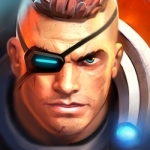
Hero Hunters
Games and Entertainment
App
Play the #1 Team Shooter on Mobile - Hero Hunters! Collect Powerful Heroes, Join an Alliance and...
Merissa (13792 KP) rated Dustwalker in Books
Aug 25, 2017
Dustwalker by Tiffany Roberts
Dustwalker is a post-apocalyptic dystopian novel, set around the community of Cheyenne. The humans scrimp through their living as best as they can, ruled over by the bot Warlord. Our main female, Lara, is worried about her missing sister, and surviving the best way she can, by finding scraps and trading them for food. Ronin is a dustwalker, a bot who goes out into the Dust. Some say the dustwalkers are a crazy lot, but Ronin knows that he is alone. No one will come looking for him if something happens to him out there. Through fate, Lara and Ronin's live connect, and what happens next is something that neither of them saw coming.
This is an amazing story, with world-building that is second to none. Every scene is 'real' and completely believable, even when they involve bots ;) This book is a bit of a slowburner, but in the best possible way. You get drawn into Lara's world, with all the hunger and pain and loss that goes with it. You feel for Ronin as he tries to understand what he has said to upset Lara! Most of all, you root for these two, and everyone else in Cheyenne, to get their HEA. After all they have been through, they deserve it; and as a reader, you will want it for them.
The pace is smooth, slow and gentle to entice you into their world, and building up as the story progresses. There were no editing or grammatical errors that disrupted my reading flow. The characters are all highly developed and completely distinct. There is simply no way you could confuse one character with another. There are some steamy bits but they are completely in keeping with the story, not superfluous in any way. This book had me right up until the last word - which I had to reread once I had wiped my eyes! Absolutely outstanding, I am so pleased I was given the opportunity to read this book. Highly recommended by me.
* A copy of this book was provided to me with no requirements for a review. I voluntarily read this book, and my comments here are my honest opinion. *
Merissa
Archaeolibrarian - I Dig Good Books!
This is an amazing story, with world-building that is second to none. Every scene is 'real' and completely believable, even when they involve bots ;) This book is a bit of a slowburner, but in the best possible way. You get drawn into Lara's world, with all the hunger and pain and loss that goes with it. You feel for Ronin as he tries to understand what he has said to upset Lara! Most of all, you root for these two, and everyone else in Cheyenne, to get their HEA. After all they have been through, they deserve it; and as a reader, you will want it for them.
The pace is smooth, slow and gentle to entice you into their world, and building up as the story progresses. There were no editing or grammatical errors that disrupted my reading flow. The characters are all highly developed and completely distinct. There is simply no way you could confuse one character with another. There are some steamy bits but they are completely in keeping with the story, not superfluous in any way. This book had me right up until the last word - which I had to reread once I had wiped my eyes! Absolutely outstanding, I am so pleased I was given the opportunity to read this book. Highly recommended by me.
* A copy of this book was provided to me with no requirements for a review. I voluntarily read this book, and my comments here are my honest opinion. *
Merissa
Archaeolibrarian - I Dig Good Books!
Paul Kellett (118 KP) created a post in Solo Gamers
May 9, 2019
Joe Goodhart (27 KP) rated A Boy and His Dog in Books
Nov 30, 2020
I was very saddened to hear the news of Harlan Ellison's passing. While I didn't agree with him on some things, I did agree with him on a great number of them. Cantankerous, but not snarky or mean-spirited, in his writings and conversations. I found him to one of the best writers on the planet. Now, he's joined the likes of Shakespeare, Emerson, Vonnegut, all at God's assembled roundtable of literary greats! :)
Okay, that's enough of my tribute-of-sorts to Harlan Ellison. Now, for my review of A BOY AND HIS DOG.
This was a a quick, fun read. Quite literally, it is the adventure of boy (Vic) and his telepathic dog (Blood). The two rely on each other, sharing bond that comes through in all of their exchanges. A four-legged friend who became so much more than just a "canine companion".
The tale was written in 1969 and was later adapted for film by L.Q. Jones. Despite the time written, the book still reads as if written yesterday. And that was something unique about Ellison: his writing felt timeless, as if it was not tied to any particular time during which it was written.
Yes, the language can be deemed coarse at points, but still far less offensive than anything written today. The use of profanity is given to the way Vic speaks, a product of the post-apocalyptic world he was born. It never feels forced or anything approaching offensive. It just feels, for want of a better word, natural.
Again, this is a fun short story about a boy and his dog. It may not appeal to everyone, but I surely liked it and I hope that maybe you will, too.
Also, stick around after the story, as "AHBHU: The Passing of One Man's Inspiration and Best Friend". It is Harlan Ellison's tribute/memorial to his rescued dog, a Puli (essentially, a Hungarian sheep dog), and how much he meant to him, so much so that he was whom Ellison based Blood's character on. I challenge you to NOT tear up by the conclusion!
By all means, good people, please check this one out!
Okay, that's enough of my tribute-of-sorts to Harlan Ellison. Now, for my review of A BOY AND HIS DOG.
This was a a quick, fun read. Quite literally, it is the adventure of boy (Vic) and his telepathic dog (Blood). The two rely on each other, sharing bond that comes through in all of their exchanges. A four-legged friend who became so much more than just a "canine companion".
The tale was written in 1969 and was later adapted for film by L.Q. Jones. Despite the time written, the book still reads as if written yesterday. And that was something unique about Ellison: his writing felt timeless, as if it was not tied to any particular time during which it was written.
Yes, the language can be deemed coarse at points, but still far less offensive than anything written today. The use of profanity is given to the way Vic speaks, a product of the post-apocalyptic world he was born. It never feels forced or anything approaching offensive. It just feels, for want of a better word, natural.
Again, this is a fun short story about a boy and his dog. It may not appeal to everyone, but I surely liked it and I hope that maybe you will, too.
Also, stick around after the story, as "AHBHU: The Passing of One Man's Inspiration and Best Friend". It is Harlan Ellison's tribute/memorial to his rescued dog, a Puli (essentially, a Hungarian sheep dog), and how much he meant to him, so much so that he was whom Ellison based Blood's character on. I challenge you to NOT tear up by the conclusion!
By all means, good people, please check this one out!
Heather Cranmer (2721 KP) created a post
Jan 12, 2021
Darren (1599 KP) rated Man Down (2016) in Movies
Sep 16, 2019
Characters – Gabriel is a marine that believed he was fighting for the right thing but when the war came to America when he was away, he must search the destruction in hope of finding his son. Devin is the best friend and marine to Gabriel, he supports him through his missions and search for his son. Counsellor Peyton is the man learning about the mission that went wrong, as we learn that his mindset might not be as clean as we are led to believe.
Performances – Shia LaBeouf is good in this leading role showing a range we have questioned before. Jai Courtney is good in the supporting role showing us there is talent with the right material. Gary Oldman is great and that is how we like him calm and collective.
Story – The story is told in four parts, as we follow Gabriel in his home life, war time, meetings with a counsellor and in the post-apocalyptic time, these timelines only confuse the story telling process as by the end of it we will find ourselves wondering just what actually happened to these men, what is real and what is not. By the end you will understand what happened but it does make certain parts feeling random, but the true message is important.
Thriller – The thrilling side of the film does feel slow in places, it shows us certain moments only to make a complete switch in the final act.
Settings – The settings do help keep us in the different location for each moment of the story, we can identify with each part of the story we are watching too.
Scene of the Movie – The final act, and how it is shot is beautiful.
That Moment That Annoyed Me – A lot of what we see is not as important.
Final Thoughts –This is a standard movie for the most part, it starts being confusing for the first hour but when it unfolds you will be taken back where this movie goes.
Overall: Slow and confusing nearly saved by a wonderful final act.
Performances – Shia LaBeouf is good in this leading role showing a range we have questioned before. Jai Courtney is good in the supporting role showing us there is talent with the right material. Gary Oldman is great and that is how we like him calm and collective.
Story – The story is told in four parts, as we follow Gabriel in his home life, war time, meetings with a counsellor and in the post-apocalyptic time, these timelines only confuse the story telling process as by the end of it we will find ourselves wondering just what actually happened to these men, what is real and what is not. By the end you will understand what happened but it does make certain parts feeling random, but the true message is important.
Thriller – The thrilling side of the film does feel slow in places, it shows us certain moments only to make a complete switch in the final act.
Settings – The settings do help keep us in the different location for each moment of the story, we can identify with each part of the story we are watching too.
Scene of the Movie – The final act, and how it is shot is beautiful.
That Moment That Annoyed Me – A lot of what we see is not as important.
Final Thoughts –This is a standard movie for the most part, it starts being confusing for the first hour but when it unfolds you will be taken back where this movie goes.
Overall: Slow and confusing nearly saved by a wonderful final act.
